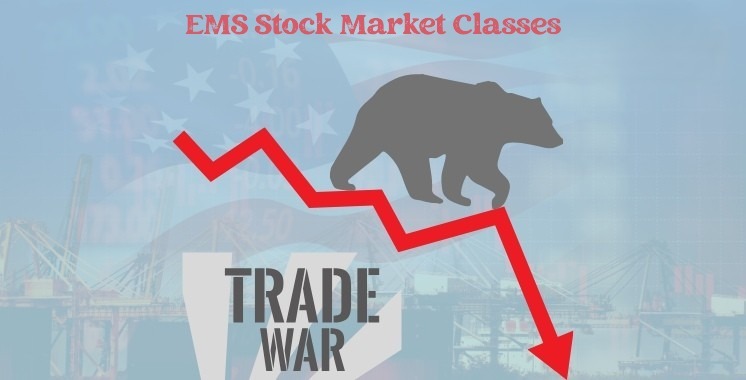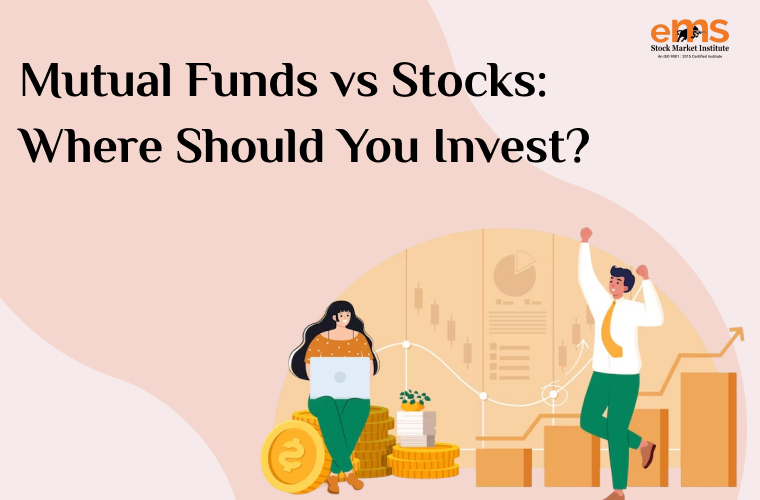COVID-19, which was at its peak in 2020-21, was a global nightmare.
Layoffs, company closures, and uncertainties had gripped us all, leaving us in despair.
But amidst all the bad experiences, the COVID era taught us many lessons.
One of them was the importance of risk management.
The hardships of COVID underlined why managing risks is important to sail through tough times easily, particularly by creating additional sources of income like the share market.
Risk management forms a significant aspect of our stock market courses in Pune.
But let’s also learn from history to avoid those mistakes and see why risk management is crucial after COVID and how share markets and the best share market courses in Pune help.
Understanding Risk Management – For Individuals as Much as Corporates!
Risk management doesn’t merely apply to corporate companies but also to individuals.
Essentially, managing risks is about anticipating potential setbacks and preparing for them. It is about asking, what could go wrong, and how do I protect myself for tomorrow.
COVID-19 was a massive wake-up call for everyone in the world. It made people realize how harmful relying on a single source of income could be and why you must have an extra layer of financial security to stay afloat.
Why Risk Management Matters More in the Post-COVID Era?
Let’s see why risk management isn’t just good but essential after COVID.
- Increased Volatility: The world has become more unpredictable and volatile than ever. Rising geopolitical turmoil, economic recessions, and the dynamic landscape make it crucial to be strategically and financially prepared.
- Changing Job Spectrum: COVID encouraged companies to adopt remote working and automation, making conventional job security history. Many people are exploring the gig market and freelancing opportunities along with their regular jobs.
- Personal Emergencies: From unforeseen medical bills to making emergency savings, COVID reinforced how quickly life can take a turn. Personal emergencies thus form a significant aspect of managing risks in today’s times.
The above emphasizes the significance of creating an additional income source. With extra money on hand, you can prepare for uncertainties and volatility better.
So, is investing in the share market an alternative then?
How Can Share Market Trading Contribute to Better Risk Management After COVID?
Adding sources of income refers to diversifying the streams of income. And this is where share market trading and investing step in.
Honestly, during lockdowns, many people reassessed how they earn money. As a result, some of them turned to stock market trading – not to get rich quickly but at least to survive.
And that made sense then as much as it does now!
When you trade or invest wisely, share markets can help you generate passive income, providing a cushion to the main source, particularly when there’s a disruption.
But here’s the kicker! Investing or trading isn’t devoid of risks. Prices fluctuate. Markets rise and crash. So, is this idea a contradiction to risk management? No. The best share market classes in Pune help you master risk management techniques. Here’s a quick overview.
Don’t Just Hope to Survive Uncertainty — Learn to Thrive! Master Risk Management with Our Share Market Courses in Pune or Online at Finearn Today!
How to Manage Risks in the Share Market – Overview
Share market risk management is an extensive topic. But here are some basic guidelines.
- Know Your Goals: Establish your financial goals and work towards fulfilling them. Avoid wandering and trading aimlessly. It can lead to abrupt choices.
- Knowledge is the Key: Understand how the markets work and the various trading techniques to leverage the right ones at the right time.
- Make Informed Decisions: Impulsive choices can lead to losses. Analyze stocks, situations, and companies based on your financial goals to make educated decisions.
- Look at the Bigger Picture: Don’t always chase quick profits. Some stocks are long-term players. Focusing on steady growth and resilience denotes risk-awareness.
- Control Your Emotions: Markets run on sentiments. But don’t let yours overwhelm you with ups and downs. Stay controlled and focus on your goals.
- Diversify: This is fundamental to stock market trading and investing. Don’t invest all your capital in a single asset. Diversify as much as possible to reduce risks.
Prepared to Combat Risks Effectively?
EMS is one of the best places to learn how to manage risks and trade in the share market. Our comprehensive share market and future and options trading classes in Pune help you learn how to invest, trade, and earn confidently.
Important Update!
EMS has now evolved into Finearn Share Market Academy.
But only the name has changed. Our commitment to excellence and approach are the same.
We also are happy to expand our offerings to classroom and online learning options.
As an institute, we are sure this will help strengthen our position in the list of the top 10 best online share market classes in Pune.
So, join us at Finearn and benefit from our expert guidance that meets modern flexibility. Call us at +91 95618 61818 to know more.

 +91 95618 61818
+91 95618 61818



